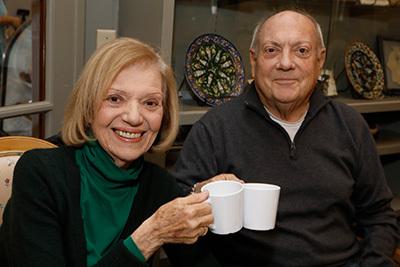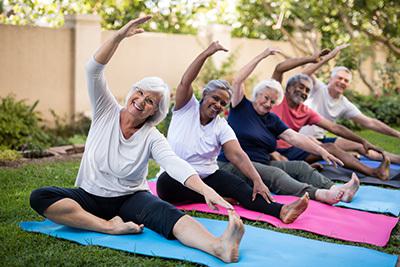How to Make the Most of Your Retirement Years


How to Make the Most of Your Retirement Years

If you're heading into your older years, you might be considering retirement. While leaving your work role may feel like you are embarking on a permanent vacation, some people find it a tough transition. It all depends on your mindset.
Researchers have found retirees are happiest when they plan how to spend their time and make the most of it.
Here are some tips for transitioning from a fulfilling work life to a fulfilling life in retirement.
Stay Social
Leaving the workplace doesn't have to mean leaving your social network behind. Indeed, research shows that maintaining strong social networks seems to be linked to slower cognitive decline. So, maintain those workplace friendships, while also enjoying regular lunches or game nights with your "civilian" friends.
Intergenerational relationships are also essential to healthy retirement years. Take some time to get to know your grandkids, nieces and nephews, or the children of family friends. According to Harvard Psychiatrist George Vaillant, "generativity" means investing in, caring for, and developing the next generation. Bonus: Older adults who did so were three times as likely to be happy as those who did not.
Are you more of a homebody? Adopt a pet. Research shows that caring for a pet brings many health benefits, including a sense of purpose, happiness and security.
Expand Your Mind
Studies have shown that lifelong learning can be associated with better memory and cognitive skills, improved mood and better well-being. See if your local university or community college offers learning opportunities. Now's the chance to audit an anthropology course, or delve into oceanography or bioethics. Senior Centers also offer courses in current events and even languages.
Being retired can also mean time to unleash the right-brain and release your creative power. You could explore painting, ceramics or even gardening, which are all beneficial to your emotional well-being,
Another way to expand your vistas is to travel. Travel leads to meeting new people, learning about different cultures and facing fresh challenges.

Maintain Good Fitness
Whether it's scheduling more rounds of golf, tennis matches or walks with friends, it's crucial to your healthy retirement years to find physical activities that you enjoy and to make them a regular part of your week. Here are more details about how to stay fit.
In addition to exercising, eating healthy is also key. As you head into your late 60s, your body changes, as do your nutritional needs. Consult these resources from the University of Wisconsin-Madison for some ideas on developing healthy eating habits.
In addition, maintaining long-term good health means visiting your doctor for regular checkups and screenings, including hearing and vision.
Achieve That Helper's High.
With less time focused on building and sustaining your career, now could be the time to give back.
Depending on your goals—meeting new people, or beautifying your local park—there are plenty of options to choose from.
If you are the type who likes to stay busy, consider helping your alma mater or your favorite nonprofit by actively serving on their board.
Doing good deeds provides a "helper's high," which can help you live a longer and healthier life.
And, a longer and healthier life means more time to enjoy your retirement years!